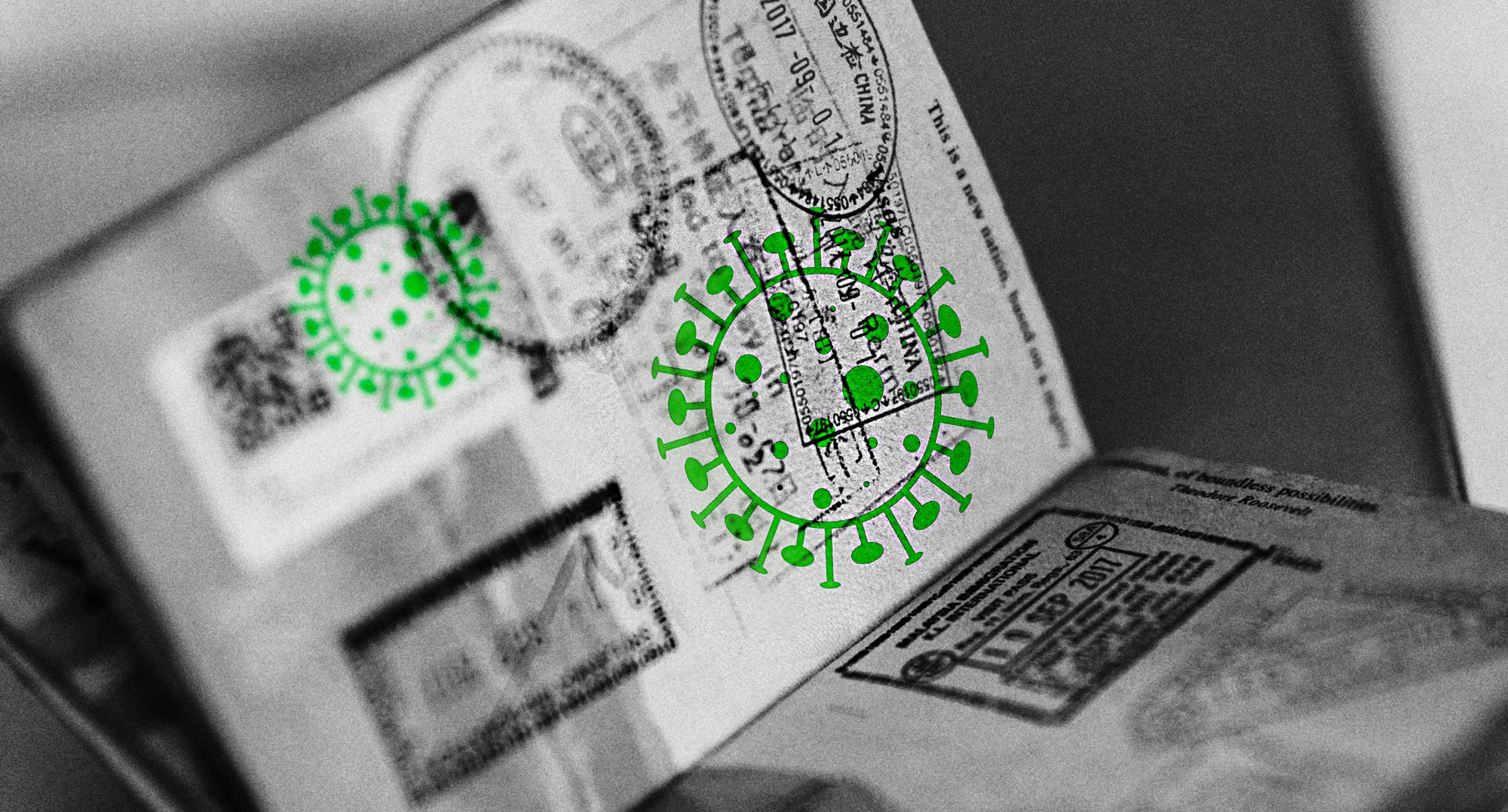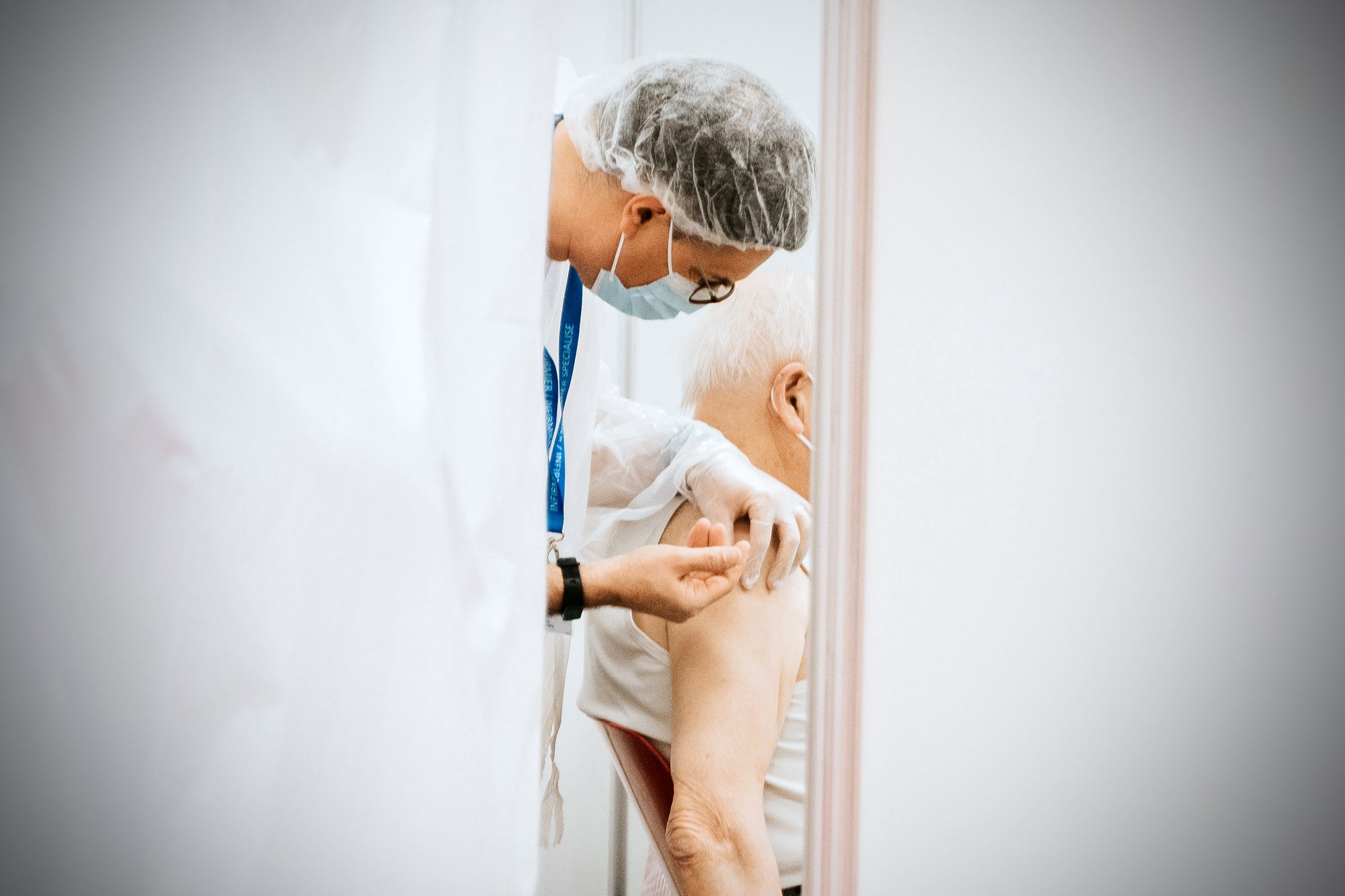Coronavirus Vaccines and Covid Passports Are Being Sold on the Dark Web: Zaborona reports on cost and availability in Ukraine

The dark web is awash with counterfeit coronavirus vaccines and even “Covid passports” that don’t yet exist, according to data published March 22 by the cybersecurity firm Check Point. By their account, the number of listings has doubled in the last three months. Prices begin at one hundred dollars. Zaborona reports on how scammers are taking advantage of the pandemic and how matters stand in Ukraine.
Covid passports
Documents identifying those who had recovered from coronavirus and “posed no danger to others” were being discussed as early as spring 2020. Proposed names included ‘immunity cards and ‘Covid passports’. Last year, the European Commission announced the creation of a ‘Digital Green Card’ to be introduced by June of 2021. This document would contain personal data on vaccination, negative coronavirus test results, or recovery from Covid-19. The most avid supporters of a ‘Digital Green Card’ are countries such as Greece and Italy, whose budgets are dependent on tourism.
Although no official ‘Covid passports’ yet exist, scammers are already selling fakes. In the UK, for example, ‘vaccine cards’ can be bought for $150 — that is, the USD equivalent in cryptocurrency. In Russia, such a card costs $110, despite being little more than a color printout with no official stamp or signature. These ‘passports’ have no purpose, as they are counterfeits without an original.
To combat fakes, Check Point recommends affixing QR-codes with digital signatures to any such documents. The code should be provided by an institution capable of confirming the document’s veracity. Border protection and customs officials would then be able to scan them and determine whether an individual can cross the border.
Counterfeit vaccines, delivered
On the dark web, counterfeit vaccines are sold just like drugs or weapons. Sellers advertise vaccines in syringes or vials for a certain price. Buyers, when transferring funds, receive either nothing or a substance of unknown origin with no certificate of quality.
Europol warns that buying such ‘vaccines’ is dangerous. In the best case scenario, a buyer is only tricked out of his money. In the worst, he receives a product without any guarantee that it is a real coronavirus vaccine.
Last year, as soon as the EU approved the Pfizer/BioNTech vaccine, a Lithuanian Facebook user posted an offer to send the vaccine by mail. Her sister, she claimed, lived in America and could organize delivery. In Estonia, meanwhile, scammers were ‘selling’ the vaccine by phone before the country even received its first doses.
Recently, scammers have only become more active. Experts at Check Point have tallied 1200 offers to obtain supposed Covid-19 vaccines. They come from the US, Spain, France, Germany, and Russia. For the Oxford/AstraZeneca vaccine, they ask for five hundred dollars. For the Johnson & Johnson vaccine, six hundred, the same as for Russia’s Sputnik and China’s Sinopharm.

Photo: Mat Napo / Unsplash
In China, eighty people were detained in February for trading counterfeit vaccines. They had been filling syringes with saline solution and selling them in Beijing, Shanghai, and the eastern province of Shandong since September 2020. 3,000 doses had been sold. The scammers were also suspected of illegally exporting doses to Africa.
In Ghana, criminals sold real vaccines, albeit stolen. Two healthcare workers are accused of stealing thirty-six vials of the vaccine Covishield. According to investigators, they were offering the vaccine for nearly thirty-five dollars per dose, even though it is ordinarily free.
Vaccine fraud also extends to large-scale purchases. On March 20, the European Anti-Fraud Office announced that 12 EU members had received offers to buy non-existent coronavirus vaccines for more than fourteen billion euros. The thieves requested payment in advance, planning to disappear once they received it. No further details were provided, as is typical for the Anti-Fraud Office’s work.
Curios and inflated prices
In 2020, plasma from recovered Covid patients could be purchased on darknet markets. Sellers promised ‘lifetime immunity’ to its users. A liter ran as much as $16,500, and researchers logged no fewer than nineteen offers, most likely originating with doctors from various corners of the world.
The popular darknet market Monopoly even banned product listings related to Covid-19.
“You do not, under any circumstances, use COVID-19 as a marketing tool. No magical cures, no silly fucking mask selling, toilet paper selling. None of that bullshit. We have class here,” wrote Monopoly representatives.
In Russia, scammers offer their own take on ‘vaccination packages’. Private clinics have been roped into the public vaccine campaign, and some owners have taken the opportunity to profit: free vaccines are being sold at prices ranging from one hundred to almost seven hundred euros. The cheapest ‘package’ consists of medical supervision and a follow-up shot. More expensive options include two PCR tests as well. For more on the Russian vaccine Sputnik V and why it is not being used in Ukraine, see our earlier report.
Meanwhile in Ukraine
There have been no official reports of scams related to Covid passports or counterfeit vaccines in Ukraine. Fake negative Covid-19 test results, however, are widespread. Tour agencies sell them alongside package tours, and are joined by companies that previously sold phoney negatives for other diseases. The problem is that a Covid test costs on average 1000-1500 hryvnia, twice as much as a fake. And with a fake, there is no standing in line: it can be sent straight to the buyer’s email. However, no one can guarantee that the holders of such ‘documents’ will be allowed to cross borders.
Maxim Lunochkin, an expert with the Digital Security Lab, has no doubt that Ukraine will soon see large-scale scams of its own, since there is a demand for vaccines and documents.
“It’s like fraud on OLX (a popular local shopping site – ed.). These scams aren’t new. Before they got to us, they were used on sites like Allegro. Here, the scammers either found local partners or sold the blueprint for their scheme. Now they write in Ukrainian and are well-oriented towards the local context,” said Lunochkin.
Fighting such scams can be extremely difficult, he says, since scammers work diligently to avoid being caught. They use single-use or otherwise temporary IP addresses and phone numbers, false names, and other such tricks. And they may not even be located in Ukraine.
“A lot depends on government policy. If vaccines, documents, and tests are made accessible, there won’t be such a demand on the black market,” said Lunochkin. “On the other hand, if they’re scarce, like now, demand will be high. That will create the conditions for an increase in scams.”
Translated by Hallie Sala from Respond Crisis Translation





